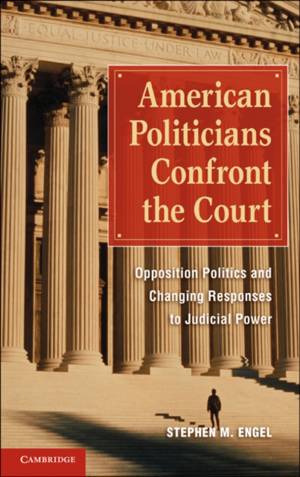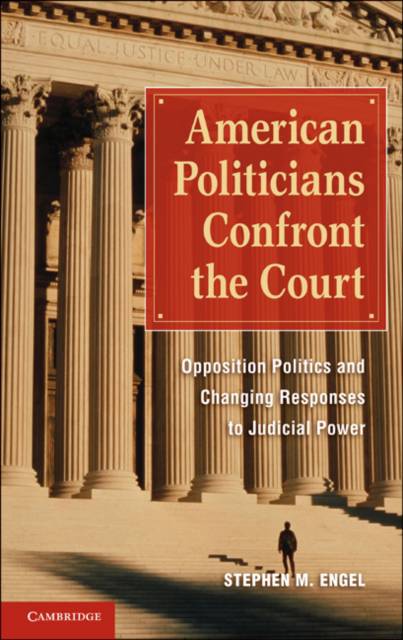
- Afhalen na 1 uur in een winkel met voorraad
- Gratis thuislevering in België vanaf € 30
- Ruim aanbod met 7 miljoen producten
- Afhalen na 1 uur in een winkel met voorraad
- Gratis thuislevering in België vanaf € 30
- Ruim aanbod met 7 miljoen producten
Zoeken
American Politicians Confront the Court
Opposition Politics and Changing Responses to Judicial Power
Stephen M Engel
Paperback | Engels
€ 56,45
+ 112 punten
Uitvoering
Omschrijving
Politicians have long questioned, or even been openly hostile to, the legitimacy of judicial authority, but that authority seems to have become more secure over time. What explains the recurrence of hostilities and yet the security of judicial power? Addressing this question anew, Stephen Engel points to the gradual acceptance of dissenting views of the Constitution, that is, the legitimacy and loyalty of stable opposition. Politicians' changing perception of the threat posed by opposition influenced how manipulations of judicial authority took shape. As politicians' views toward opposition changed over time, their approach toward the judiciary - where opposition could become entrenched - changed as well. Once opposition was no longer seen as a fundamental threat to the Constitution's survival, and multiple constitutional interpretations were considered legitimate, judicial power could be construed less as the seat of an illegitimate opposition and more as an instrument to achieve political ends. Politicians were more likely to harness it to serve their aims than to openly undermine its legitimacy. In short, conflicts between the elected branches and the judiciary have not subsided. They have changed form. They have shifted from measures that undermine judicial legitimacy to measures that harness judicial power for political ends. Engel's book brings our understanding of these manipulations into line with other developments, such as the establishment of political parties, the acceptance of loyal opposition, the development of different modes of constitutional interpretation, and the emergence of rights-based pluralism.
Specificaties
Betrokkenen
- Auteur(s):
- Uitgeverij:
Inhoud
- Aantal bladzijden:
- 408
- Taal:
- Engels
Eigenschappen
- Productcode (EAN):
- 9780521153980
- Verschijningsdatum:
- 13/06/2011
- Uitvoering:
- Paperback
- Formaat:
- Trade paperback (VS)
- Afmetingen:
- 163 mm x 236 mm
- Gewicht:
- 589 g

Alleen bij Standaard Boekhandel
+ 112 punten op je klantenkaart van Standaard Boekhandel
Beoordelingen
We publiceren alleen reviews die voldoen aan de voorwaarden voor reviews. Bekijk onze voorwaarden voor reviews.











